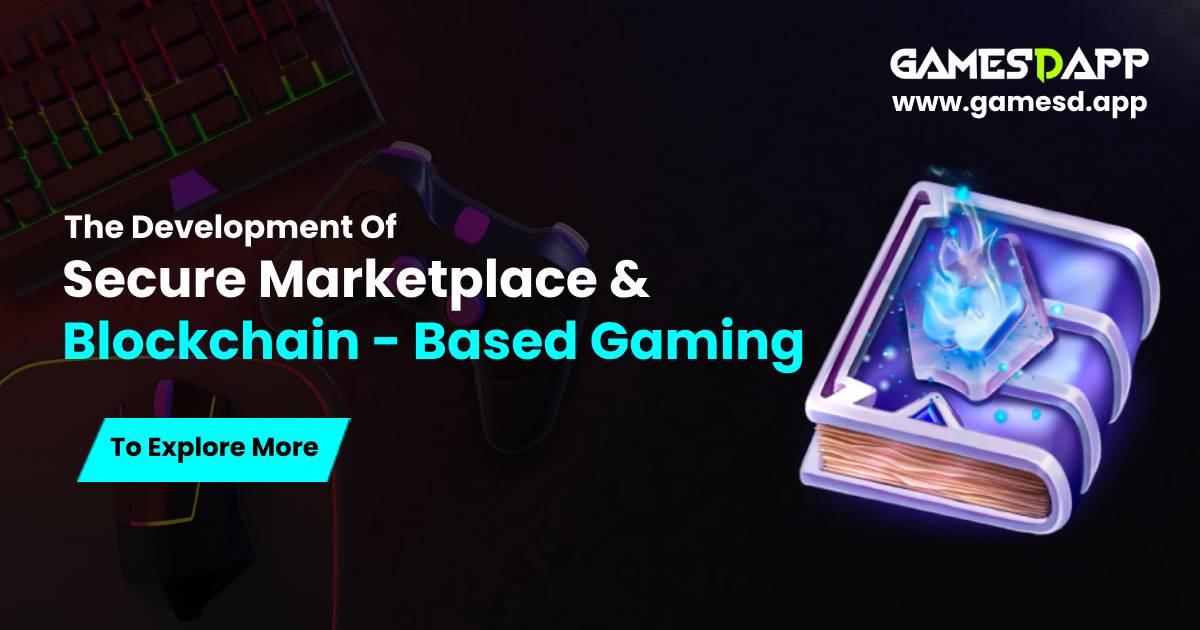
The Development of Secure Marketplaces and Blockchain-Based Gaming
In recent years, there has been a significant rise in the popularity and adoption of blockchain gaming, accompanied by the emergence of secure marketplaces. Blockchain technology, initially known for powering cryptocurrencies like Bitcoin, has found its way into the gaming industry, revolutionizing the way games are played, owned, and monetized.
Blockchain gaming incorporates the use of decentralized networks and smart contracts to provide a transparent and secure environment for gamers. Unlike traditional gaming platforms where players have limited control over their in-game assets, blockchain-based games allow players to own and manage their virtual items truly. This is made possible by storing the game assets on a blockchain, which ensures their authenticity, scarcity, and transferability.
One of the key advantages of blockchain gaming is the ability to create verifiable digital scarcity. Through the use of non-fungible tokens (NFTs), game developers can assign unique ownership to in-game items, such as characters, weapons, or skins. Each NFT is stored on the blockchain, providing proof of ownership and preventing unauthorized duplication or alteration. This has opened up new possibilities for gamers to buy, sell, and trade their virtual assets on secure marketplaces.
Secure marketplaces built on blockchain technology provide a trustworthy platform for gamers to trade their in-game assets without the need for intermediaries. These marketplaces utilize smart contracts to automate transactions, ensuring that both the buyer and seller receive their respective assets or payments. Furthermore, the transparency of the blockchain allows players to verify the authenticity and history of an item before making a purchase.
Blockchain gaming and secure marketplaces have introduced a new dimension of play-to-earn opportunities. Players can now earn rewards in the form of cryptocurrencies or valuable in-game items by participating in gameplay, completing quests, or achieving certain milestones. These rewards can then be sold or traded on secure marketplaces, providing players with real-world value for their in-game achievements.
Another notable benefit of blockchain gaming is the prevention of fraud and cheating. By storing game logic and assets on a decentralized network, it becomes extremely difficult for malicious actors to manipulate or exploit the game. The immutability and consensus mechanisms of the blockchain ensure the integrity of the gameplay experience.
Despite the tremendous potential and benefits, blockchain gaming and secure marketplaces are still in their early stages of development. Technology is evolving rapidly, and we can expect to see more innovative games and marketplaces emerge in the future. As blockchain technology continues to mature, it has the potential to reshape the gaming industry, providing gamers with enhanced ownership, security, and economic opportunities.
The Expanding Use of Blockchain in Gaming
Blockchain gaming has witnessed a growing adoption rate in recent years, as more players and developers recognize the advantages and unique opportunities it offers. This innovative fusion of blockchain technology with gaming has the potential to revolutionize the gaming industry as we know it.
One of the key drivers behind the growing adoption of blockchain gaming is the concept of true ownership. Unlike traditional games, where players merely have a license to use in-game assets, blockchain-based games grant players actual ownership of their virtual items through the use of NFTs. These non-fungible tokens are stored on the blockchain, ensuring transparency, scarcity, and the ability to transfer assets seamlessly. This ownership empowers players by allowing them to monetize their in-game assets, trade them on secure marketplaces, or use them in various blockchain games.
Another factor contributing to the rising popularity of blockchain gaming is the play-to-earn model. Blockchain games provide players with the opportunity to earn valuable rewards, such as cryptocurrencies or rare in-game items, by actively participating in gameplay or achieving specific objectives. These rewards can then be sold, traded, or used within the game ecosystem, creating real-world value for players' time and efforts.
Moreover, blockchain technology enables secure and transparent transactions within gaming ecosystems. Through the use of smart contracts, players can engage in peer-to-peer transactions, buy or sell in-game assets directly, and eliminate the need for intermediaries. The decentralized nature of blockchain ensures the integrity of these transactions, minimizing the risks of fraud or unauthorized manipulation.
Blockchain gaming also fosters community engagement and collaboration. Players can contribute to the development of games through decentralized governance systems, participate in voting mechanisms, or propose new features or improvements. This level of community involvement enhances player satisfaction and strengthens the bond between developers and their player base.
Furthermore, blockchain technology addresses challenges related to data privacy and security. By utilizing decentralized networks, player data can be stored securely on the blockchain, reducing the risk of data breaches and unauthorized access. This increased privacy protection provides players with more control over their personal information, fostering trust and confidence in the gaming ecosystem.
While blockchain gaming has gained significant traction, it is still an evolving field. Challenges such as scalability, user experience, and mainstream adoption must be addressed for wider acceptance. However, with ongoing technological advancements and the growing interest from players, developers, and investors, the future of blockchain gaming looks promising.
In conclusion, the growing adoption of blockchain gaming is driven by the advantages it offers, such as true ownership, play-to-earn opportunities, secure transactions, community engagement, and enhanced data privacy. As the technology continues to mature and overcome its current limitations, we can expect blockchain gaming to become an integral part of the gaming industry, transforming the way games are played, monetized, and experienced.
Takeaway :
The way that players interact with virtual worlds is being revolutionized by blockchain gaming and safe marketplaces. Players may actually own and exchange their in-game assets thanks to the power of blockchain, and secure marketplaces maintain transparency and confidence. We can anticipate a fascinating future when blockchain transforms the gaming industry and offers unique opportunities and experiences for players all around the world.
Blockchain Game Development - GamesDapp

